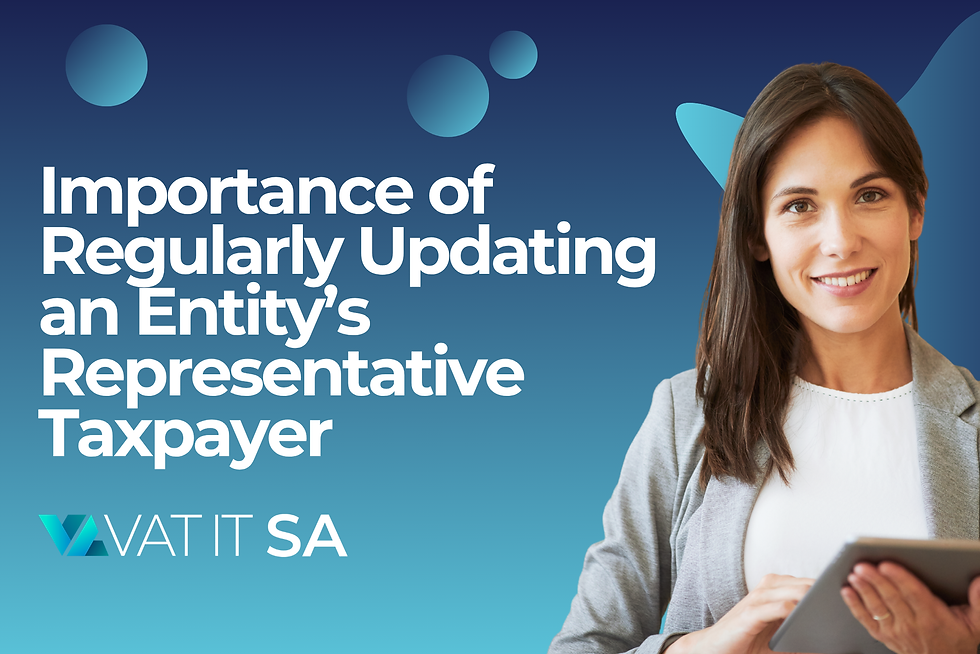Tax Invoice Requirements for Foreign Electronic Services Providers
- Ruan Jansen van Vuuren

- Jan 17, 2022
- 2 min read
Updated: May 17, 2022

The market for suppliers of electronic services is expanding globally and various tax jurisdictions are implementing VAT legislation to cater for this. As a result, more foreign “electronic services” (e-services) providers will have additional VAT liabilities in tax jurisdictions which were historically not taxed or taxed in the hands of the recipient of the service.
South Africa has already introduced legislation which requires foreign suppliers of e-services to register for VAT and to charge VAT to its customers who are based in South Africa. Most VAT systems utilized globally are designed to provide a detailed audit trail and it is therefore imperative that the correct source documents are issued and retained by the suppliers of e-services. In South Africa, these suppliers are required to comply with section 20(5B) of the Value-added Tax Act, 1991 (“the Act”) when issuing invoices to its customers. Non-compliance may result in penalties and interest.
SARS has published a public notice on 10 December 2021 prescribing the particulars that must be included in a tax invoice, where the supply is made by any foreign e-services providers:
The name and VAT registration number of the supplier of the electronic service;
The name and, where the recipient of the electronic service is a vendor, the VAT registration number of the recipient of the electronic service;
The business address, residential address, or postal address of the recipient of the electronic service;
An individual serialized number;
The issue date on the tax invoice;
A full description of the electronic services supplied; and
The consideration in money for the supply in the currency of any country
and if the consideration is reflected in the currency of—
o the Republic—
the value of the supply; and
the amount of tax charged or a statement that the consideration includes a charge in respect of the tax and the rate at which the tax was charged; or
o any country other than the Republic—
the amount of the tax charged in the currency of the Republic and the exchange rate used; or
a separate document issued by the electronic services supplier reflecting the amount of tax charged in the currency of the Republic and the exchange rate used.
Lastly, SARS prescribes that the following exchange rates must be utilized when converting foreign currency transactions to ZAR:
The South African Reserve Bank (www.resbank.co.za);
Bloomberg (www.bloomberg.com); or
the European Central Bank (www.ecb.europa.eu).
Follow us on LinkedIn for more industry-related topics at: https://www.linkedin.com/company/vat-it-sa Let VAT IT SA handle all your compliance needs to ensure your business becomes fully compliant today.
Article by: Ruan Jansen van Vuuren
VAT Consultant



Comments